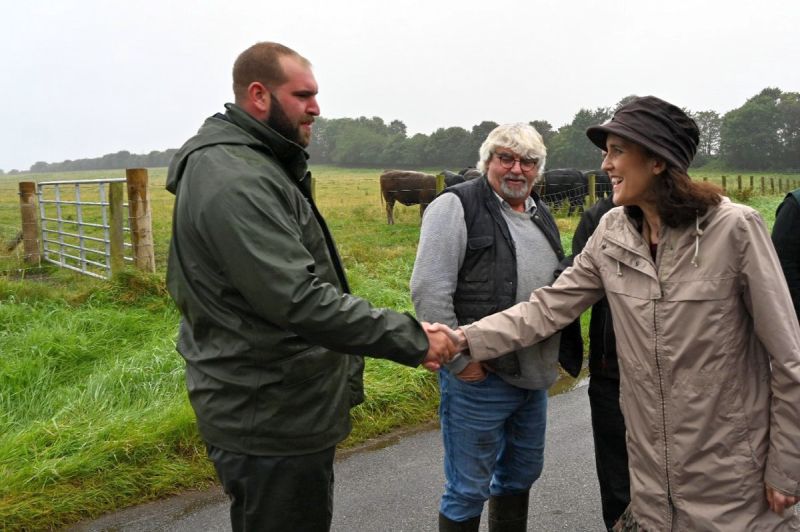
Defra Secretary Theresa Villiers visited Scottish farmers yesterday and heard how the uncertainty around farming has 'never been higher'.
The newly-appointed Secretary of State toured Pitgaveny Farms in Moray on Wednesday (18 September).
Organised by NFU Scotland, the tour outlined the importance of the government delivering a deal on Brexit which favours the UK farming industry.
Top of the agenda for discussion were the union’s three priorities for Brexit; the future policy support for the sector; trade policies which uphold standards of production; and an immigration policy which meets the needs of the agri-food labour market.
Pitgaveny Farms produces cereals, beef, pork and lamb and lets out land for potatoes and carrots.
Its mix of conventional and organic production and commitment to high quality production provided Ms Villiers with an overview of Scottish farming.
Vice President Charlie Adam, who attended the tour, said: “We had a constructive discussion on the unique profile of the industry and the reasons why the devolved delivery of a fully-funded, targeted future support package is so important to the needs of the industry in Scotland.”
Pitgaveny Farm manager, Martin Birse, said the uncertainty highlights the need for all sectors to be properly supported in the future.
“The malting barley we have grown on contract this year might make a small profit but for those forced to sell uncontracted malting barley on the spot market, the prices will come nowhere near production costs of around £150 to £160 per tonne and, without support, would be totally unsustainable,” he explained.
Beef breeding heifers that the farm was selling last year reached £1200, but it will struggle to make £1000 this year, Mr Birse added.
“Farmers and crofters want to run their businesses without support but input costs – particularly in very difficult years like this - are largely beyond our control and market prices are far from reliable.”
Chairman of the Combinable Crops Committee, Ian Sands, a cereal producer from Perthshire said leaving with no-deal would not give farmers 'protection or opportunity'.
He said: “NFUS has always been clear that a deal must be found on the terms of the UK’s exit which ensures that trade can continue on a frictionless basis, and that our standards that we are proud are not undermined by inequivalent imported produce coming cheaply into our domestic market.
“Leaving the EU with no deal on 31 October will not give us that protection or opportunity, particularly if the UK government’s proposed import tariff schedule is enacted in the event of no deal.”
